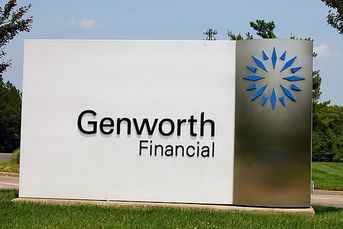Bargains going a-begging in the muni market: Deutsche Bank
Risk of defaults on tax-free bonds overblown, says bank's head of fixed-income group
There’s a powerful positive feedback loop working that will boost the U.S. economy and stock market this year, said Larry Adams, U.S. chief investment strategist of Deutsche Bank Private Wealth Management. The group manages $427 billion in global assets and $123 billion in the Americas.
Between a suddenly pro-business President Obama, an accommodative Fed, and increasingly confident consumers and businesses, Mr. Adam has a target of 1,400 on the S&P 500 by year-end and thinks investors will continue to shift money into riskier assets. “It’s all about putting a security blanket on the economy,” he said at a press briefing this morning.
Slowly, consumers appear to be getting comfortable with the recovery. That’s not the case for municipal bonds, with investors stampeding out of tax-exempt funds. But the pall currently hanging over munis actually presents a great opportunity, Gary Pollack, Deutsche’s head of fixed-income trading, said.
Indeed, Mr. Pollack said investors should be looking for bargains in the municipal bond market. By his lights, predictions of a muni meltdown are vastly overstated. Despite the serious fiscal problems facing many states and municipalities, the risk of defaults is low. If states and municipalities want to continue to access the bond market — and keep their cost of borrowing from skyrocketing — they will most certainly make their debt payments, Mr. Pollack said.
He also noted that debt service costs for larger issuers typically represent about 5% of their operating budgets — no small sum, but certainly manageable for most issuers.
Smaller municipalities with declining tax bases represent significant risks, but the wave of widespread defaults recently predicted by Meredith Whitney are highly unlikely, said Mr. Pollack. The improving economy will help as well. With the stabilizing housing market and rising consumer expenditures, property and sales tax revenues should rise. “We’ll see a trough in the muni market in the next couple of months and credit quality will begin improving by the middle of the year,” Mr. Pollack said.
Meanwhile, Mr. Adam expects institutions to continue raising their equity allocations toward the historical norm of 55%, which would pump about $170 billion into the stock market this year. Retail equity investors should contribute $250 billion. Add in the roughly $300 billion in stock buybacks from cash-rich companies and the supply/demand picture looks very strong over the next twelve months, he suggested. “The theme is investors continuing to search for yield.”
The trend holds true in the fixed-income markets as well, with investors looking for riskier, higher-yielding credits. “The spreads will narrow and defaults will fall,” said Mr. Adam. That being the case, an allocation to high-yield issues and some emerging market debt is in order, he said.
Learn more about reprints and licensing for this article.




